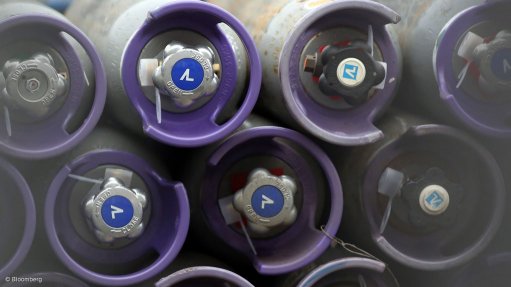Smart network technologies can alleviate South Africa’s water insecurities
A scaled-up deployment of smart water networks will enable South Africa to better manage its water security.
South Africa faces deteriorating water quality and water inequality challenges, attributed in part to low historical investment into water infrastructure development and insufficient maintenance on the existing water infrastructure network, as well as recurrent droughts.
“Although South Africa has a world-renowned water policy and legislation, implementation of these has been the main deterrent in increasing water security. As such, South Africa must look for solutions that will aid in this endeavour, to the benefit of the economy and its people,” says energy and water solutions group SEM Solutions head of water Dr Andries Nel.
A smart water network will contribute towards increased water security, improving and detecting problems within the water network, monitoring water use and leakages and providing improved data on treatment processes.
“Smart water networks are defined as the integration of smart technologies into the water distribution network infrastructure. This enables technology to provide improved monitoring, control and forecasting capabilities of existing water networks,” he explains.
Big data can also be used as part of the network to improve the frequency and quantity of informational responses received from the system, thereby providing efficiency and optimisation enhancements.
South Africa is already experiencing increased adoption of smart network technologies, particularly in the commercial building sector, where commercial customers are more inclined to provide the higher capital cost required for an improved utility management system, including leak detection and monitoring capabilities, in the long term.
“This is evident in sectors such as retail and offices where sub-metering and billing of tenants are involved,” says Nel, noting that commercial entities, real estate investment trust companies and developers who are dedicated to sustainability and digitalisation already use these technologies.
He cites the prime Green Star six-star building examples of the Hotel Verde building, in Cape Town, and the Department of Environmental Affairs building, in Pretoria, where smart metering was incorporated as part of the building management.
“Various hospital, hotel and leisure groups also use smart water networks on a large scale to provide a holistic utility management strategy for their assets.”
However, challenges, such as the additional capital cost required to implement these systems and the education and training required to successfully operate and maintain them, remain in the deployment of smart water networks in South Africa, he adds.
“Since South Africa has several remote locations with low Internet connectivity, these costs vary depending on the complexity and range of the selected water network,” Nel points out.
Despite this, smart water network technologies have many benefits and feasibility should be considered on a project basis for each network.
Smart water networks can improve leak detection, billing accuracy, fault detection and pressure fluctuations in the system owing to improved data and demand profile generation.
They are also scalable and, through the incorporation of the Internet of Things, the network size can vary with almost infinite connections, as long as connectivity is maintained.
“Therefore, bespoke smart water networks can be created from a residential level to commercial, metropolitan and then cross-country networks.
“Considering order of magnitude effects, smart water networks have proven to provide the best results if implemented on large scale water networks,” he concludes.
Comments
Press Office
Announcements
What's On
Subscribe to improve your user experience...
Option 1 (equivalent of R125 a month):
Receive a weekly copy of Creamer Media's Engineering News & Mining Weekly magazine
(print copy for those in South Africa and e-magazine for those outside of South Africa)
Receive daily email newsletters
Access to full search results
Access archive of magazine back copies
Access to Projects in Progress
Access to ONE Research Report of your choice in PDF format
Option 2 (equivalent of R375 a month):
All benefits from Option 1
PLUS
Access to Creamer Media's Research Channel Africa for ALL Research Reports, in PDF format, on various industrial and mining sectors
including Electricity; Water; Energy Transition; Hydrogen; Roads, Rail and Ports; Coal; Gold; Platinum; Battery Metals; etc.
Already a subscriber?
Forgotten your password?
Receive weekly copy of Creamer Media's Engineering News & Mining Weekly magazine (print copy for those in South Africa and e-magazine for those outside of South Africa)
➕
Recieve daily email newsletters
➕
Access to full search results
➕
Access archive of magazine back copies
➕
Access to Projects in Progress
➕
Access to ONE Research Report of your choice in PDF format
RESEARCH CHANNEL AFRICA
R4500 (equivalent of R375 a month)
SUBSCRIBEAll benefits from Option 1
➕
Access to Creamer Media's Research Channel Africa for ALL Research Reports on various industrial and mining sectors, in PDF format, including on:
Electricity
➕
Water
➕
Energy Transition
➕
Hydrogen
➕
Roads, Rail and Ports
➕
Coal
➕
Gold
➕
Platinum
➕
Battery Metals
➕
etc.
Receive all benefits from Option 1 or Option 2 delivered to numerous people at your company
➕
Multiple User names and Passwords for simultaneous log-ins
➕
Intranet integration access to all in your organisation


















